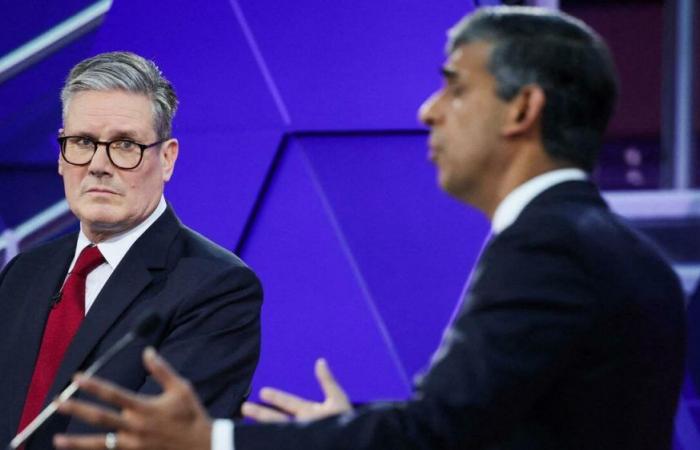On July 4, around 50 million people in the United Kingdom are going to the polls for a very important event: the elections to renew the Westminster Parliament that will give confidence to the new government. After 14 years of Conservative domination, current Prime Minister Rishi Sunak faces a decisive challenge against Labour leader Sir Keir Starmer. Polls indicate a likely victory for Starmer, suggesting a historic changing of the guard at Number 10 Downing Street. Here’s everything you need to know about voting in the UK.
When and how to vote
Voting is from 7am to 10pm (8am to 11pm Italian time). Britons living abroad, around 3 million, can also vote, regardless of how long they have lived outside the country. Voters must register with their local council and go to the assigned polling station, where they express a single preference on the ballot paper. According to a recent decree, it is necessary to present an identity document at the polling station, a measure introduced to prevent electoral fraud and which has sparked controversy, particularly among ethnic minorities.
The electoral system
Great Britain is a parliamentary constitutional monarchy. The British electoral system is a first-past-the-post system, known as First Past the Post. It is a simple and straightforward mechanism with deep historical roots. This system, confirmed in its current form in 1948, divides the territory of the United Kingdom into 659 electoral constituencies. In each constituency, the candidate who receives the most votes wins the seat in the House of Commons.the lower house of Parliament. Each voter expresses a single preference for the candidate in his or her constituency. The candidate with the highest number of votes represents the constituency in the House of Commons. This system promotes government stability, often guaranteeing a solid majority to the most popular party. However, it tends to favour the two main parties – Conservatives and Labour – at the expense of minor parties, which can gain a significant percentage of the national vote without managing to win many seats.
No direct election of the Prime Minister
British voters vote only for the constituency candidate who will represent them directly in Parliament. The government is formed by the party – or coalition – that wins the majority of seats in the House of Commons; the leader of that party automatically becomes Prime Minister, so that if a new secretary from the ruling party is elected during the parliamentary term, the Prime Minister resigns and the Queen entrusts the new secretary with the task of forming a new government. Party leaders stand for election to the House, each in their own constituency.
Advantages and disadvantages of the electoral system
The English system, hated and loved, has the advantage of ensuring direct representation and generally excluding extremist parties, promoting moderate forces. Parties with strong local support, such as the Scottish National Party (SNP), can achieve significant representation. However, minor parties such as the Greens and UKIP (United Kingdom Independence Party) often struggle to win seats, despite significant national vote shares. But this time, the situation may not be so black and white because the Conservatives are so unpopular that they could be overtaken by the most extremist party: Nigel Farage’s.
The British Parliament: the House of Commons and the House of Lords
The British Parliament has 650 members of parliament elected to the House of Commons, which is also where most of the members of the government cabinet come from. In addition, they are the only ones who vote confidence in the government. The second chamber is represented by the House of Lords, which is not subject to direct elections, with its members chosen by co-optation, with the exception of a small group of hereditary seats (which Labour has long promised to abolish). Indeed, in the Lords, there are religious members almost all from the highest ranks of the Anglican Church. Or aristocratic members, “peers” chosen by the parties.
What’s new: the four nations of the United Kingdom
A significant change in these elections concerns the distribution of constituencies in the four nations that make up the United Kingdom. England, Scotland, Wales and Northern Ireland saw a reorganization of their electoral districts based on demographic criteria. England, the most populous nation, gained 10 seats, reaching 543, while Scotland and Wales saw a reduction in their seats.
The satirical candidates
There is a nice and bizarre electoral tradition in Great Britain: the satirical candidates. In the electoral district of the Prime Minister or the aspiring Prime Minister, on election night, on stage with the prestigious candidate also come characters disguised as stuffed animals or in a colorful way. These are people who use this space of visibility not to compete in the elections (they are not candidates) but to support a specific cause. They are diverse: one of the most famous is Count Binface, you will recognize him because he is a guy who wears a trash can costume and also appeared at the last Glastonbury festival.
Binface will challenge Rishi Sunak for the Richmond and Northallerton seat (and may lose it to him), while Keir Starmer will be on stage with the red Elmo soft toy in Holborn, London.
© ALL RIGHTS RESERVED
This article is automatically translated






